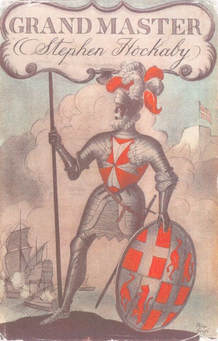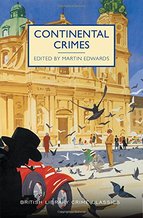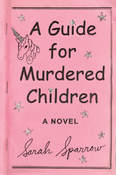
Between those two amazing battles – the latter will carry the pious and ascetic John de la Naye to the position of Grand Master of the Order – John meets Francesca, introduced to him in Venice by his lusty friend Paolo. But it is Paolo who becomes the father of Francesca's child, and years later John sees the soul and spirit of his long-dead friend when the boy, now a young man, fights alongside him in Malta. The year-long siege on the high fort is brutal, taking its toll both in lives (on both sides) and in moral ambiguity (whose God would champion barbarism and death to others on such a massive, man-made scale?). Ultimately, John passes from his life with an understanding that the Infidel, while still the enemy, should be offered respect, as the best among them are as worthy as our own.
Interestingly, for as much admiration as I have of Grand Master's challenges and victories as a work of detailed historical fiction, it is a story (with a very ascetic and tight-lipped protagonist at its center) that feels cool and removed. Whereas the excellent Seven Stars and Orion focused on a farming family in the Middle Ages whose characters were multi-dimensional, passionate, and appealingly human, there is a sense of cool observation and detachment from the world's baser motives that John de la Naye fosters here. It is in keeping with his destined path of becoming a high-ranking Christian soldier and leader, but it also renders him slightly unknowable and, in a sense, sainted before he should be. Almost certainly, Mitchell based her fictional protagonist on the real Grand Master at the time of the Siege of Malta, Jean Parisot de la Valette, whose status and heroic reputation she acknowledges in an author's note. And while he is indeed a worthy subject for a historical adventure, the conscious connection with such a venerable figure may have encouraged the author to present de la Valette's fictional counterpart as a model of piety.
It is quite interesting to compare the themes and ideas of Grand Master with a book published a year earlier by Gladys Mitchell's friend and companion Winifred Blazey. Indian Rain (1938) – which is dedicated to "Stephen Hockaby" – is also a story about a man journeying through a hard and often brutal world, looking for a larger meaning both spiritual and physical from life. As with Grand Master, Blazey's story chronicles terrible, barbaric moments derived from the social and cultural codes in the countries and eras under observation, and does so using objective, matter-of-fact narration. Both writers also choose not to judge these cultures and actions, and Mitchell allows her protagonist to recognize both the humanity of the enemy (as with the Bashik brothers) and the un-Christian cruelty that can consume an ally. As the novels were likely written around the same time, it is curious to consider how the two women may have helped each other shape and deliver their stories of young men who try to find spiritual purpose and personal meaning in dark and dangerous times.
This review is also posted at www.gladysmitchell.com, my tribute site to the great mystery author, where you can find original summaries and reviews of more than 80 of her books, including all 66 titles of her Mrs. Bradley mystery series.


 RSS Feed
RSS Feed